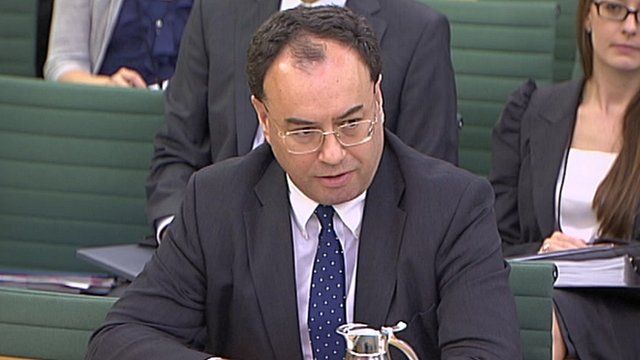Pressure mounts on the new Governor, from figures include former government chief scientific adviser Sir David King.

More than 100 leading figures from across finance, civil society and academia have signed a letter calling on incoming Bank of England governor Andrew Bailey to accelerate efforts to green Britain’s financial system.
The letter addressed to Bailey, co-ordinated by research and campaign groups Positive Money, the New Economics Foundation, Greenpeace, the SOAS Centre for Sustainable Finance and E3G, warns that measures taken by the Bank of England “are unlikely to be enough” to help the government meet its climate targets.
Outgoing Bank of England governor Mark Carney has cautioned that the financial system is currently funding an increase in global temperatures of more than 4C.
Signatories therefore urge Bailey, who will take over from Carney on 16th March, to use his position as head of Britain’s central bank “to lead the way” in aligning finance with the 1.5C target aimed for in the Paris Agreement ahead of this year’s COP26 summit in Glasgow.
Among the 101 signatories are UBS senior scientific advisor and former government chief scientific adviser Sir David King, ex-Citigroup chief economist and former Bank of England Monetary Policy Committee member Willem Buiter and primatologist Jane Goodall, as well as three members of the UK’s influential Committee on Climate Change (CCC) and four expert advisers to the UK’s citizen Climate Assembly.
The letter calls on Bailey to take three specific steps towards this:
- Making it mandatory for firms to disclose climate risk “as soon as possible”
- Excluding fossil fuel assets from both future rounds of quantitative easing (QE) and the assets the Bank accepts as collateral, so as to “lead by example”
- Considering changes to the Bank’s macroprudential framework which would see high-carbon lending penalised
As chief regulator of the UK’s financial system, the Bank of England plays a key role in facilitating the huge re-allocation of capital required to meet the climate targets governments have signed up to through the Paris Agreement.
Under Mark Carney the Bank has begun to recognise the severity of the threat climate change poses to its responsibilities for economic and financial stability, warning that up to $20tn could be lost from stranded carbon assets. However there are fears that the momentum needed to decarbonise the financial system may not be kept up by his successor.
The letter comes ahead of Bailey’s pre-appointment hearing in front of the Treasury Select Committee on Wednesday, which will be an opportunity for MPs to grill him on his suitability and plans for governing Britain’s central bank.
Fran Boait, executive director of Positive Money, said:
“The investments made by our financial system today determine whether we will be able to keep global temperature rises below the 1.5C upper safe limit. Finance is currently funding warming of more than 4C, which represents an existential threat not only to finance and the economy, but to life on earth.
“As the institution overseeing and underpinning our financial system, the Bank of England must lead the way and do everything it can to stop environmental breakdown being funded on its watch. With less than a decade to drastically cut emissions and avoid irreversible climate breakdown, Andrew Bailey must ensure that climate remains high on the Bank’s agenda. These steps are a necessary starting point.”
Frank van Lerven, senior economist at the New Economics Foundation, said:
“Climate risks pose a clear and systemic danger to the financial system but these risks are not fully reflected in asset valuations. Ensuring the financial system is fully resilient to climate related financial risks falls squarely within the mandate of the Bank, and must therefore be a top priority for new governor Andrew Bailey.
“Despite many positive steps in the right direction, policy action at the Bank is lagging behind the rhetoric. At present monetary and prudential operations are laced with a carbon bias – reinforcing climate-related financial risks and contravening the spirit of the Paris Climate Agreement. Leading by example and integrating climate risks into the Bank’s own monetary and prudential operation would sensibly be the first place to start.”
The letter and full list of signatories can be viewed here.
To reach hundreds of thousands of new readers we need to grow our donor base substantially.
That's why in 2024, we are seeking to generate 150 additional regular donors to support Left Foot Forward's work.
We still need another 117 people to donate to hit the target. You can help. Donate today.



